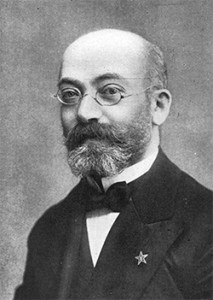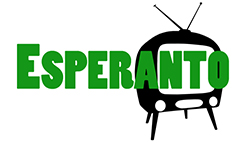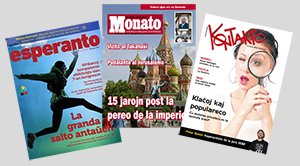The simple structure and rules of Esperanto make it incredibly easy to learn (150 hours of study vs 2000 hours for German) yet also give the speaker the capability of expressing the same kind of complex thoughts available to natural languages. Based on Indo-European, Germanic, Slavic and Greek languages, Esperanto also gives students of other languages a superior foundation for learning.
Here is what Esperanto looks like:
Ŝia esprimo de amo al mi vere kortuŝis, sed indikis nur, ke ŝi estas malsata ĉar la aliaj katoj formanĝis jam ĉion.
Which translates to: “Her expression of love for me was really touching, but indicated only that she was hungry, since the other cats had already eaten everything up.”
To hear what the above phrase sounds like, click the play button below.
(This example was chosen from the book Being Colloquial in Esperanto – A Reference Guide by David K Jordan.)
There are a few films shot entirely in Esperanto, including one of debatable quality from 1966 starring William Shatner called Incubus. More recently there have been a number of documentaries such as Academy Award-nominated director Sam Green’s The Universal Language.
In 2012, to celebrate 125 years of Esperanto, an Esperanto short film competition was arranged, inviting entries up to five minutes long. The diverse and entertaining results can be viewed on YouTube.
There are also a number of films which aim to teach Esperanto; for a list of these visit our learning online page.
A wide selection of Esperanto music is available from Vinilkosmo.
Esperanto speakers are also welcome to use the “Pasporta Servo” or “Passport Service” to find free accommodation throughout the world at the homes of other Esperantists. This service is organized by TEJO, the Worldwide Esperanto Youth Group.
There are many and varied Esperanto events each year throughout the world.



